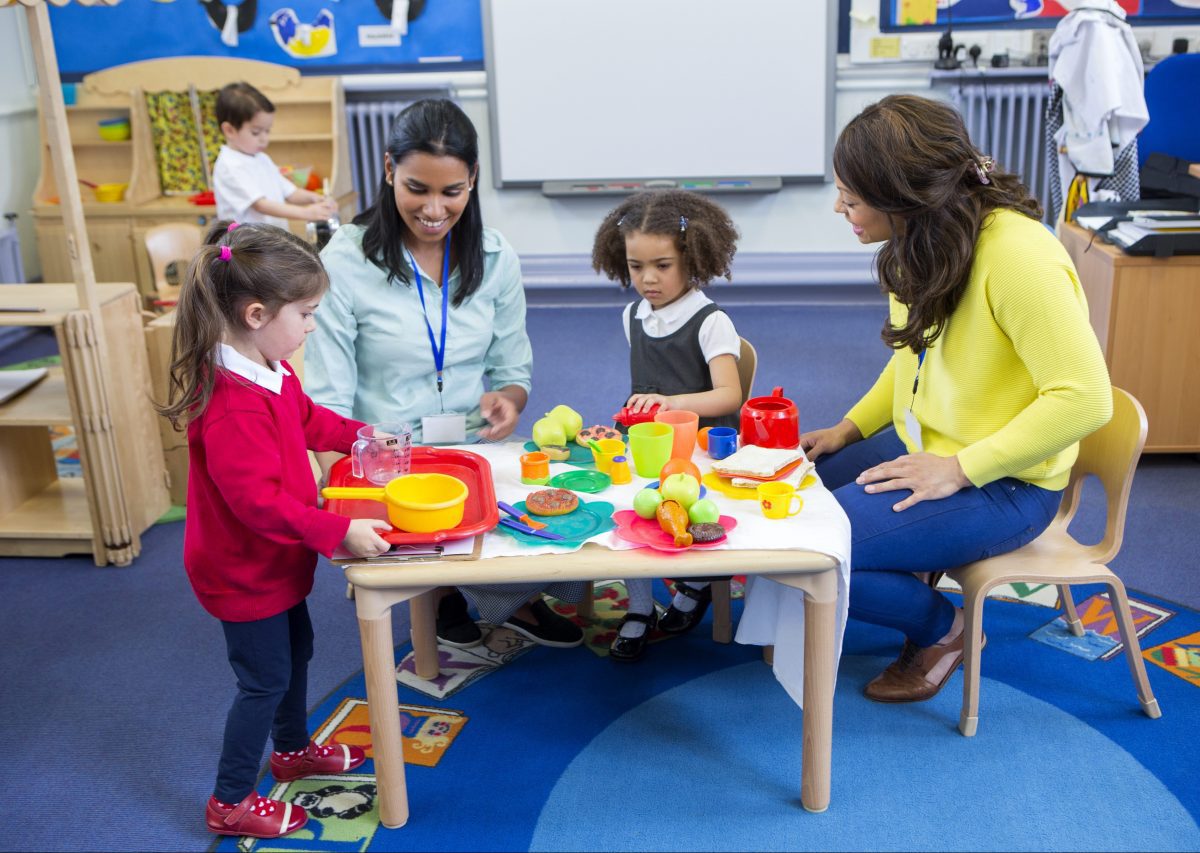Research
Early Care & Education
Early Care and Education (ECE) programs, such as child care centers and family daycare homes, provide regular care to most American young children. As such, ECE providers could shape children’s food preferences and eating behaviors by offering nutritious foods and beverages and using feeding practices that encourage healthy eating.
The ECE food environment is particularly important for children from low-income families who have more limited resources to provide adequate nutrition at home. Nationwide, over 4 million children receive subsidized meals and snacks through the federal Child and Adult Care Food Program (CACFP). CACFP reimburses participating ECE providers for serving meals and snacks that meet specific nutrition standards, helping offset their food costs while also saving time and money for families that have their children fed in child care.
Prior studies suggest that CACFP-participating programs serve more nutritious foods, help reduce food insecurity for young children and improve children’s dietary intake compared to what they eat at home. Despite the availability of the federal funds to help feed young children, many eligible ECE programs do not participate in CACFP. Surprisingly, many do not even know about the program. The Rudd Center has been working to document CACFP participation nationwide, identify barriers to the program and help ECE providers overcome them.
Learn more about our work to expand CACFP, improve children's nutrition, and enhance training for providers below.
Action Guide for Child Care Nutrition & Physical Activity
The Connecticut State Department of Education’s Action Guide for Child Care Nutrition and Physical Activity Policies includes best practices for promoting healthy eating and physical activity for children in child care from infancy through school age, based on current science, public health research, and national recommendations and standards. It can be used in a variety of settings, including Child and Adult Care Food Program (CACFP) facilities (centers, family day care homes, at-risk afterschool centers, and emergency shelters), Head Start centers, School Readiness programs, child care programs, early care and education programs, licensed centers, school-based preschool programs, and afterschool programs.


